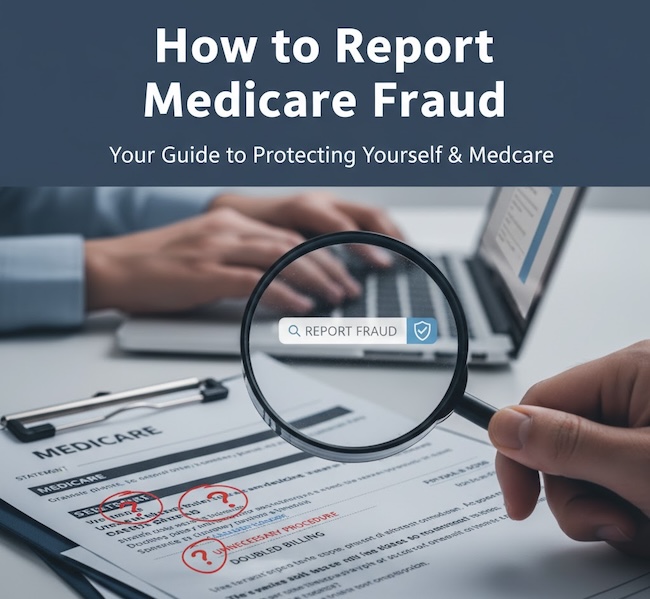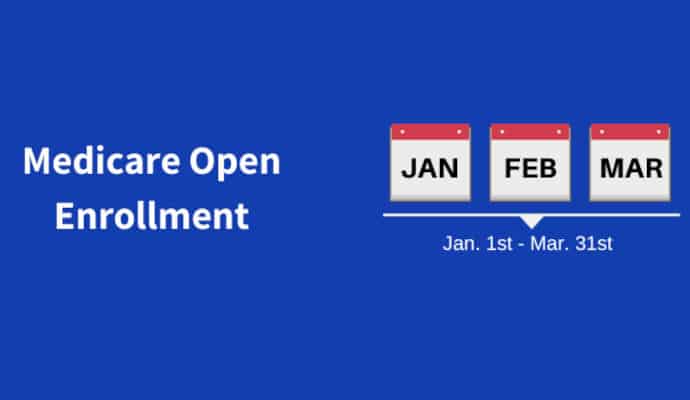You review your bank statement meticulously and guard your personal information fiercely, but have you ever considered giving your Medicare Summary Notice the same scrutiny? Medicare fraud is not a victimless crime—it steals billions of taxpayer dollars each year and can directly jeopardize your own benefits and medical records.
Spotting an error might feel like finding a needle in a haystack, but knowing how to identify and report suspicious activity is a powerful way to protect yourself, your finances, and the integrity of a vital program for millions.

Here’s a clear, straightforward guide on how to spot Medicare fraud, who to tell, and where to find information you can truly trust.
Scams and Misleading Medicare Policies are Increasing
Federal officials say complaints from seniors who were tricked into buying misleading Medicare policies are on the rise.
They might have been enrolled without their consent or lured by questionable or fake information into plans that might not cover their drugs or include their doctors.
To combat this, the Centers for Medicare & Medicaid Services (CMS) has threatened to penalize private insurance companies selling Medicare Advantage and drug plans if they or their agents mislead consumers.
CMS has also revised rules that make it easier for Medicare beneficiaries to escape plans they didn’t sign up for or enroll in only to discover that promised benefits didn’t exist or they couldn’t see their healthcare providers.
We explain how to report a Medicare fraud or scam. And to help you avoid these scams, we also share three ways to get trustworthy information about Medicare.
How to Report Medicare Fraud and Scams
If you or your loved one has been approached by a salesperson who acted inappropriately or aggressively or has been enrolled in an insurance plan without consent, call 1-800-MEDICARE and file a complaint.
You can also find your state department of insurance in the Insurance Information Institute directory and file a complaint.
Government Agencies In Charge of Medicare Fraud
The most direct and authoritative sources for quotes on this topic are the official government agencies tasked with combating Medicare fraud.
Primary Source: The HHS-OIG Website
The most citable expert is the U.S. Department of Health and Human Services, Office of Inspector General. Their website (oig.hhs.gov) is the definitive source for reporting fraud.
Direct Citation from HHS-OIG:
“To report suspected Medicare fraud, call the OIG Hotline at 1-800-HHS-TIPS (1-800-447-8477). You can also report it online at https://oig.hhs.gov/fraud/report-fraud/ “
Official instructions from the HHS-OIG Hotline.
To report a scammer who pretended to be from Medicare, call 1-800-MEDICARE and visit ReportFraud.ftc.gov
“If a caller pressures you for your Medicare number, if a deal seems too good to be true, or if you simply feel uneasy—hang up and report it. You are the best judge of what feels right. Your report can be the critical piece that stops a multi-million dollar scam.” – Senior Investigator for HHS-OIG
VIDEO: How to Report Medicare Fraud
3 Ways to Get Trustworthy Medicare Information
1. The Center for Medicare and Medicaid Services (CMS)
Going through CMS directly is the safest way to explore your options and make changes to your coverage.
Visit the CMS Medicare website at https://www.medicare.gov/ or start a Live Chat at https://www.medicare.gov/talk-to-someone
Or, call CMS Medicare at 1-800-633-4227
2. Area Agencies on Aging (AAA)
To get help comparing plans and finding the best one for your healthcare needs, contact your county’s Area Agency on Aging (AAA).
Find your local AAA using the Eldercare Locator.
3. State Health Insurance Assistance Program (SHIP)
You can also get free help from trained counselors from the State Health Insurance Assistance Program (SHIP).
Final Thoughts
By learning to recognize and report suspicious activity, you transform from a potential victim into a proactive guardian of your healthcare. Your vigilance matters—every reported discrepancy helps protect your personal coverage and strengthens Medicare for everyone.
Don't ever feel hesitant or intimidated; reporting is your right, and the process is designed to be confidential and simple. So, keep those statements handy, trust your instincts if a charge looks wrong, and take pride in being the first line of defense.
Together, we can help ensure these critical resources go to the patients who need them most.
Recommended for you:
- Medicare Open Enrollment 2025: Minimize Costs, Maximize Coverage
- Get Medicare Advice From State Counseling Programs
- 9 Medicare Open Enrollment Scams To Avoid
About the Author

Connie is the founder of DailyCaring.com and was a hands-on caregiver for her grandmother for 20 years. (Grandma made it to 101 years old!) She knows how challenging, overwhelming, and all-consuming caring for an older adult can be. She also understands the importance of support, especially in the form of practical solutions, valuable resources, and self-care tips.













